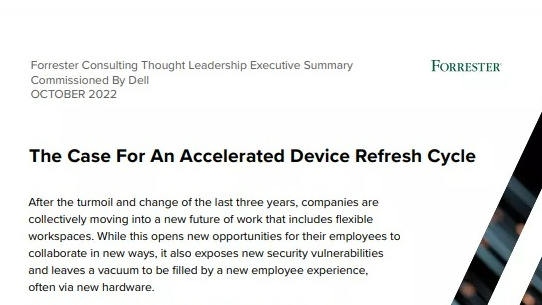Confusion reigns over Microsoft's Windows Messenger retirement plans
Reports suggest the firm will start winding down service from March, but will not be switching it off completely for another 12 months.


Microsoft is to start winding down its Windows Messenger service from 15 March, but the network will remain available to users in some form for the next 12 months.
On 8 January, The Next Web reprinted an email sent from Microsoft to Messenger users explaining they would be migrated over to Skype, which was acquired by the Redmond giant in 2011.
The service is understood to have more than 100 million users.
"On 15th March 2013 we are retiring the existing Messenger service globally...and bringing the great features of Messenger and Skype together," the email stated.
"Update to Skype and sign in using a Microsoft Account (same as your Messenger ID) and all your Messenger contacts will be at your fingertips."
Microsoft's move towards a consolidated communication service is a necessary development
However, Ars Technica has since revealed that 15 March is just the start of the retirement process, not a definite end date for the service.
Get the ITPro daily newsletter
Sign up today and you will receive a free copy of our Future Focus 2025 report - the leading guidance on AI, cybersecurity and other IT challenges as per 700+ senior executives
On 15 March, the Messenger client program will cease to connect to the Messenger network. Anyone trying to log in via the client will be asked to install Skype.
In October this year, Microsoft will turn off support for third-party clients using the open XMPP protocol introduced in December 2011, which includes Digsby, Adium and Pidgin.
However, the Messenger network will function until March 2014, meaning the current Windows Phone and Xbox Messenger clients will continue to work for another 16 months.
What is not yet clear is how this gradual switchover will affect the Messenger client that comes bundled with Windows 8, a prominent feature of the Modern UI default Start screen.
Randy Roberts, VP of mobility products at Siemens Enterprise Communications, said he was not surprised Microsoft had decided to retire its 14-year-old messaging product.
"We live in a world where being contacted via social media, email, IM, SMS and phone calls all in the same day is common place," he said.
"Microsoft's move towards a consolidated communication service is a necessary development to try and keep a population that is constantly on the move connected," Roberts added.

Jane McCallion is Managing Editor of ITPro and ChannelPro, specializing in data centers, enterprise IT infrastructure, and cybersecurity. Before becoming Managing Editor, she held the role of Deputy Editor and, prior to that, Features Editor, managing a pool of freelance and internal writers, while continuing to specialize in enterprise IT infrastructure, and business strategy.
Prior to joining ITPro, Jane was a freelance business journalist writing as both Jane McCallion and Jane Bordenave for titles such as European CEO, World Finance, and Business Excellence Magazine.
-
 The UK government wants quantum technology out of the lab and in the hands of enterprises
The UK government wants quantum technology out of the lab and in the hands of enterprisesNews The UK government has unveiled plans to invest £121 million in quantum computing projects in an effort to drive real-world applications and adoption rates.
By Emma Woollacott Published
-
 Netgear WBE710 review
Netgear WBE710 reviewReviews The compact WBE710 delivers great cloud management features and a good turn of Wi-Fi 7 speed – but it does have a premium price tag
By Dave Mitchell Published
-
 'Digital hide-and-seek': Workers are wasting hundreds of hours a year sourcing the information they need to carry out their role
'Digital hide-and-seek': Workers are wasting hundreds of hours a year sourcing the information they need to carry out their roleNews Knowledge workers globally are wasting a quarter of their working week tracking down information, new research from Atlassian has revealed.
By George Fitzmaurice Published
-
 Untethered: How CIOs and CISOs are paving the way for the new hybrid workforce
Untethered: How CIOs and CISOs are paving the way for the new hybrid workforceWhitepaper Effective techniques to transition from exposed legacy infrastructure to an effective zero trust strategy
By ITPro Published
-
 Unlocking the power of your digital services
Unlocking the power of your digital servicesSponsored Businesses have invested significant cash into technology since COVID-19, but are they really getting their money's worth?
By ITPro Published
-
 Delivering fast and secure digital experiences for the modern hybrid workforce
Delivering fast and secure digital experiences for the modern hybrid workforceWhitepaper A new approach to digital experience monitoring that can monitor the health of all systems
By ITPro Published
-
 Collaboration is the glue that holds your business together
Collaboration is the glue that holds your business togetherSPONSORED A combination of productivity tools and cloud telephony can enable the best from your workforce
By ITPro Published
-
 The future of work and the forgotten workforce
The future of work and the forgotten workforcewhitepaper How to deploy a mobile-first strategy so no one gets left behind
By ITPro Published
-
 The case for an accelerated device refresh cycle
The case for an accelerated device refresh cycleWhitepaper Achieving a more cost-effective device lifecycle overall
By ITPro Published
-
 Employees are choosing how they work
Employees are choosing how they workWhitepaper And with the right secure digital strategy, this could be a great thing for your business: today and far into the future
By ITPro Published